“I hope she didn’t reserve the rooms for the FBI,” Lucas said.
Weaver was moderately insulted: “Of course not. We reserved them for members of an Everglades National Park research team.” He glanced around the room at the suits and ties: “The surveillance team is gonna need jeans. Plaid shirts. We’ll check in this afternoon.”
“What are we looking for exactly?” one of the agents asked.
“We’d like to figure out what’s going on in there. Are they peddling drugs? Are they collecting guns? Are they really selling lights? What? If we see anything that looks even a little bit illegal, we get a warrant and a SWAT team out of Miami and we hit the place and we take it apart.”
The agents exchanged glances among each other, and then one of them said, “It’s something. I mean, thank God, it’s something.”
They spent an hour sorting out assignments. When they were set, they had two agents for each of two rooms, with somebody watching the Romano building all the time. Weaver would have another room for himself. Weaver asked Bob and Lucas if they wanted to take part in the surveillance—“It’s working off your tip,” Weaver said—and after a bit of discussion, they signed up. They’d begin checking in that afternoon, as soon as everyone had their plaid shirts.
As the meeting broke up, Lucas said to Tennan, “Interesting necktie. Haven’t seen a bolo in a while.”
“Yeah, well, with my girlfriend in the modeling business, I’m now fashion-forward,” Tennan said.
“Really . . .” Lucas looked more closely at the tie. It appeared to be an antique. He said, “I once told my wife if she ever found me wearing a bolo tie, she should shoot me in the head.”
“Maybe you’re not fashion-forward,” Tennan suggested.
“I normally am,” Lucas said, slightly annoyed by the suggestion that he wasn’t. “But you know, I run to Italian wool and British leather.”
“Those were good, back when Esquire magazine mattered,” Tennan said. “Still are, for older guys. If I were you . . .” He reached out and poked Lucas on the left nipple. “I’d look into a more square-cut, American look. Shoulders. A faint hint of cowboy. No cowboy boots, of course, that takes it too far. If you buy a bolo, get a good one. Antique Navajo, that’s what you’re looking for. There’s a place in Santa Fe called Shiprock Gallery. They got the real stuff.”
On the way back to their rooms, Bob said, “You look troubled.”
“What do you know about bolo ties?” Lucas asked.
“Not a fuckin’ thing,” Bob said. “Not only that, I plan to keep it that way.”
“Jesus . . . I mean, what if they’re coming back?” Lucas was appalled.
“Raiding a Mafia nest doesn’t bother you, but you’re troubled by a bolo tie?”
“When you put it like that, I sound stupid,” Lucas said.
“There you go,” Bob said.
CHAPTER
TWELVE
Jack Cattaneo walked over to the ice cream stand, got a strawberry cone, and sat on a bench next to Behan, who said, “The marshals took the bait, but they’re not going straight in. They got rooms at a motel across the street from Romano’s place. It looks like they’re planning to watch him for a while.”
“Why?”
Behan ran his free hand through his hair; he was dressed all in white, white golf slacks and a loose, long-sleeved white linen shirt. “I talked to Jimmy and he thinks they probably want to spot Romano doing something flaky, so they can kick the door. Anyway, they’re in there and the brothers got an eye on them.”
“An eye on them? From where?”
Behan chuckled. “They checked into the same fuckin’ hotel. They’ll be watching twenty-four-seven, and when the marshals make their move, they’ll be right behind them. We want to catch them right at Romano’s door, or inside, if they kick it.”
“Hope it’s not getting too complicated,” Cattaneo said. He sniffed once: something fishy in the air, beyond the usual salt from the ocean; somebody frying up a salmon somewhere. Whatever it was, it didn’t go with the ice cream. “Too many moving parts. A straight ambush would be more certain, make it look like a fucked-up robbery.”
“Nobody would believe that. And we’d lose Romano—the misdirection and the benefits up north.”
“I’m still nervous.”
“That’s what we pay you for—but this doesn’t have anything to do with us,” Behan said. “If the brothers fuck it up, they can’t put a finger on us. Jimmy hired them by remote control, and we don’t know nuttin’ about nuttin’.”
“What about the pipe?”
“Jimmy got one back from where we dumped them, cleaned it up, and put it in a dumpster out back behind Romano’s shop. The garbage pickup was yesterday, so we got a week,” Behan said. “The question is, how long do we have to wait? I don’t think it’ll be long . . . If Romano doesn’t give them a reason, the marshals’ll think of some way they can mess with him. The way these two guys operate, they’ll frame something up if they have to.”
“You trust this Elliot guy?” Cattaneo asked.
“No. He’ll go away,” Behan said. He took a lick from his cone, a rum-raisin, and said, “Which brings me to an uncomfortable subject. Your friend Alicia.”
“Ah, shit.” Cattaneo took a lick of ice cream. “She’s a nice girl. I was afraid you’d want her to go away.”
“Jack, c’mon,” Behan said. “You know the score. She could have put a finger on all of us.”
Cattaneo stopped licking: “What do you mean, ‘Could have’? Is she . . .”
“She’s gone. We didn’t feel like we could wait. I sent Jimmy over there. Gotta say, though, she had a convenient apartment, right across from the ’glades.”
“Ah, Jesus. Really? I feel terrible now.”
“You’ll get over it. You must’ve had some idea that something would have to happen after she called you.”
“Yeah, but . . . I woulda liked to’ve got a last piece of ass.”
“I know, but . . .” Their cones had paper wrappers at the bottom and Behan peeled his off, popped the remnant of the cone into his mouth, chewed a few times, said, “Good,” and, “The real problem’s gonna be the pipes. When the marshals go away, there’s gonna be a lot more attention down here. I’m told the pipes are good forever, but Jaquell told us that the ones she recovered were already getting silted over. Another six months, we might not be able to find them, even with the lights.”
“I’ve been thinking about that. I’ve got a partial solution if Jaquell is up for it.”
“What is it?”
“Slow boats,” Cattaneo said. “Sailboats, two of them. Small, maybe thirty-six-footers, something like that. Under sail in the night. Two, three knots, Jaquell rolls off the back in the dark, gets picked up two hours later by the second boat. The second boat has its sails up, but we’re also running on the engine. We rig a trailing hook off a heavy line, we drag the line past her, she slides down the line to the hook, hooks up the lift bag, and then rides the lift bag into the boat. That’s gonna slow the boat, pull it off course. As soon as it slows, we hit the engine, keep it going straight. With a little practice down in the Keys, we should be able to work out a smooth pickup with nobody even noticing a hitch, even if they’re looking.”
Behan thought about it, then said, “Could work. How much for the boats?”
“Old boats, maybe from the nineties, decent shape . . . thirty grand each.”
“And if we get jumped by the Coast Guard again? Can’t run.”
“We never take the pipes out of the lift bag,” Cattaneo said. “When the bag comes over the side, we put in some more weight. Anchor, whatever. We watch the radar, if we see anything coming at us, we drop the bag back over the side. We get the exact GPS coordinates, down to the foot, come back and pick it up later. Wouldn’t be so hard to find the second time, if we’ve got a lift bag and five pipes inside of it.”
Читать дальше
![Джон Сэндфорд Ocean Prey [calibre] обложка книги](/books/384313/dzhon-sendford-ocean-prey-calibre-cover.webp)
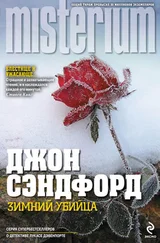

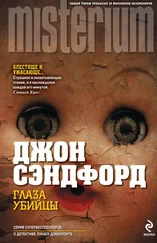
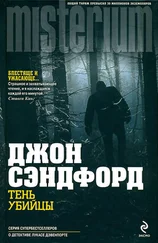
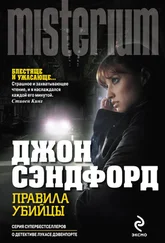
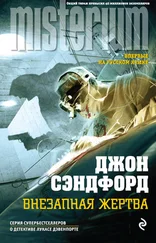
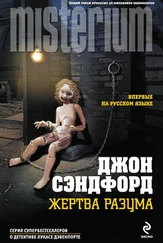
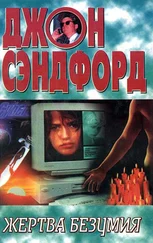

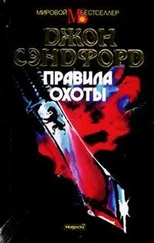
![Джон Ирвинг - Viename asmenyje [calibre]](/books/384315/dzhon-irving-viename-asmenyje-calibre-thumb.webp)
![Джон Ирвинг - Vandens metodas [calibre]](/books/384316/dzhon-irving-vandens-metodas-calibre-thumb.webp)